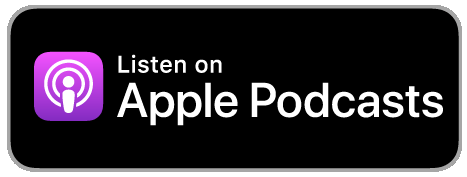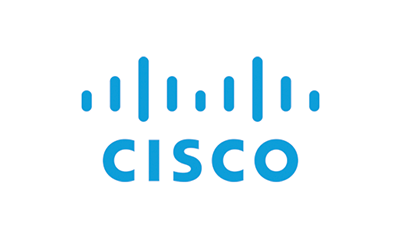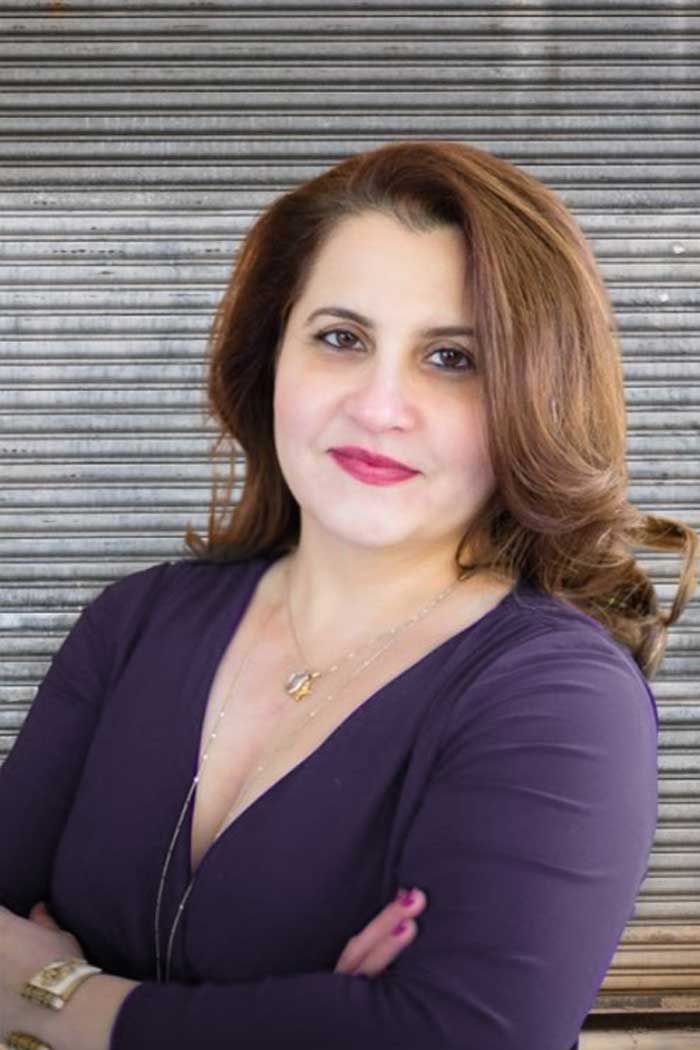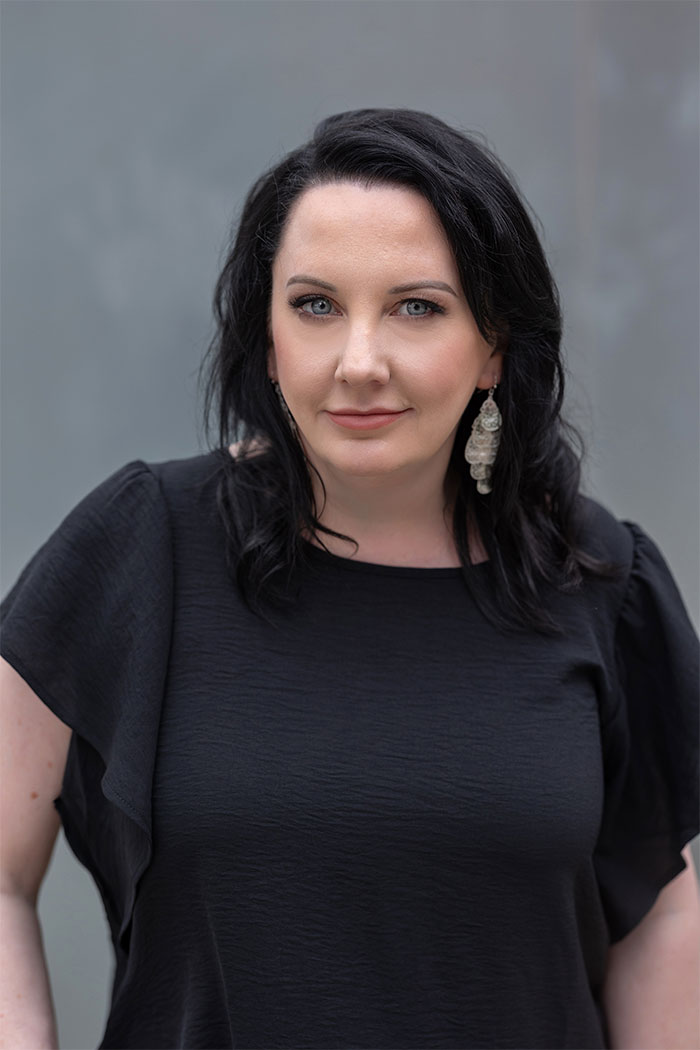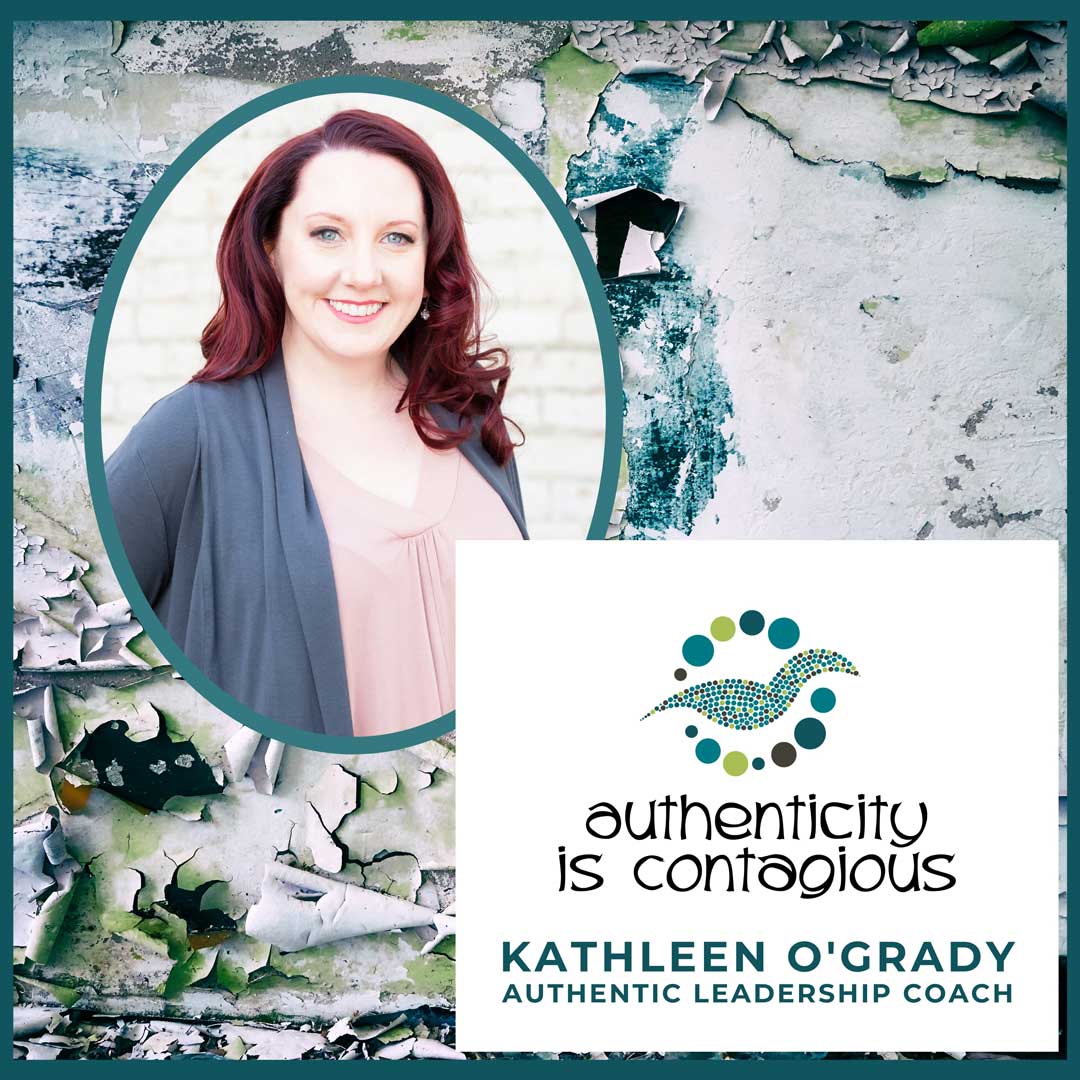
Bonus Episode
Mindfulness in the Time of Coronavirus
With the Coronavirus scare, how are we supposed to handle all of this mentally?
Authentic leadership coach Kathleen O’Grady shares the nine essential Mindfulness Based Stress Reduction tips.
SHOW NOTES
With the Coronavirus scare, how are we supposed to handle all of this mentally? Authentic leadership coach Kathleen O’Grady shares the nine essential Mindfulness Based Stress Reduction tips.
Founder of Authentic Leadership Advisors and Authentic Leadership Advisors Academy, Kathleen O’Grady is a visionary leadership coach and fearless leader. She supports driven individuals and organizations to achieve the impossible. Her ability to act as a catalyst for people to discover, rediscover, and embrace their unique genius is what makes Kathleen one of the most sought-after global executive coaches. She is a two-times past president of the International Coaching Federation Raleigh Chapter, and her work is featured in web articles by the NYTimes.com, Huffingtonpost.com, Forbes.com, and eFinancialCareers.com.
Her real-world stories, practical tools, and actionable insights help clients step out of their comfort zone to create authentic meaning and purpose in their life and work. By embracing change, Kathleen believes everyone can achieve something extraordinary.
Authenticity is Contagious is produced by Earfluence.
Transcript
Kathleen O’Grady: So this is Kathleen O’Grady, your host at the Authenticity is Contagious Podcast, and today is March 13th, 2020 this episode is potentially going to be shared before the full launch of my actual podcast, which is due for let’s say May or June. And the reason I’m doing this recording today is because we are in a very bizarre and surreal time in history regarding the Coronavirus.
We have had several opportunities to stop and be still, and, in other words, we’re forced to do that because we are not able to travel. We are not able to be in public. I mean, we can, we have free will, but we also have, I believe, a responsibility to the public safety of those around us. As with everything else, I have seen this illness divide people in terms of their perspectives on whether or not it’s being exaggerated and whether or not it’s a real thing. What we’ve seen over the last couple of days is canceling of major events. Including the basketball March Madness Tournament, which right here in North Carolina that’s a big deal. We’ve also seen companies initiate a stopping of travel and a work from home policy. I am fortunate to own my own company and be able to interact with my staff virtually, but not everybody has the luxury of working from home. People who are in the hospitality industry, people who are forced to drive buses or cabs or anything of that nature.
And so when we think about how this virus could potentially impact us, it’s easy to be self-absorbed, if you will. But what we’re not thinking about is how it’s an invisible death sentence for certain people that are loved ones, and I read a piece recently where it’s just getting started and pretty soon, not to sound bleak, but pretty soon we will all know at least one person who is impacted by this virus in some way. In fact, one of our, staff members here at Authentic Leadership Advisors Academy shared yesterday that an uncle of hers is in intensive care in Northern California with the Coronavirus. So this is a really big thing. So I want to just take a few minutes and talk about.
What are the facts, and then what can we do to manage our emotions in such a way that we continue to be caring for ourselves and caring for one another? What we know to be true is that this is a new virus, so there’s little known at this point, and scientists are working diligently at the CDC and around the world to understand more about the virus, more about how it spreads and who are most easily impacted by this virus.
We’ve heard counter-arguments that more people die from the flu than this virus, so it shouldn’t be a big deal. And my challenge to that is we have a vaccine for the flu. We don’t have a vaccine for Coronavirus. We know how the flu functions. We don’t know how the Coronavirus functions, and we’re still uncovering how easily it is spread and how it can last, not just from interactions of handshakes or hugs, but that this virus can still live in the air for up to three hours and on surfaces for as long as 24 to 48 hours. So when you’re going out and about and you’re touching things at the grocery store or even at the gas pump, think about that. Think about the fact that you could essentially have these germs on your person or in your person and go and interact with people who are high risk. My father, he’s in his late seventies and he has COPD from years of being a smoker, and I’m in a place where I’m afraid to be around my father, and I’m sure there’s a lot of people who are afraid to be around loved ones at this point.
So those are some of the facts. The other facts are more around how is this virus being tested currently, if you’re really paying attention, you’ll realize that in the United States there is a shortage of test kits. So you may be looking at the numbers of confirmed cases in your specific area, but what you’re not taking into consideration are the cases that have yet to be diagnosed.
The people who have yet to display symptoms, but who are still carrying this virus. These are all very legitimate things to think about. So thenhow do we handle that? How do we manage in our day to day function, especially for those families who have young children and they’re being expected to work from home and then their children are home from school because schools are being canceled?
How are we supposed to handle all of this? And there is no easy answer, but one practice that I have been really engaging in in the last couple of weeks is what’s called Mindfulness Based Stress Reduction. What I’m calling on right now for my own peace of mind and calm in the chaos of Coronavirus are the essential attitudes for mindfulness. I learned these tools about 13 years ago at through Duke Integrative Medicine here in Durham, but these are taught in universities and different programs around the world, and you can also Google MBSR, mindfulness based stress reduction.
But I’m going to take a few minutes here and just give you an overview of those attitudes so that you can understand and put them into practice to the best of your ability every day. The first one I will talk about is acceptance. It’s one of those things where we all want to believe in this myth that we’re in control of our surroundings and we’re in control of one moment to the next, but that has been proven to not be the case here. And so the piece around acceptance is to say, choose to believe that everything good or bad is happening for a purpose that is yet to be really revealed. Rest in the grace of knowing that peace is on the other side of resistance.
Accepting things as they are and staying curious for nuggets of wisdom will reduce anxiety. So ask yourself if this was happening for humanity, not to humanity, what are the lessons that we want to learn from this personally and collectively? We just have to accept that for right now, this is our reality.
And not to sound dramatic, but I feel like the universe is kind of giving us a wake up call of think we’ve had many wake up calls in terms of natural disasters and weather events and war, and you name it, but right now this isn’t a situation that is only specific to one geographic location. It’s pretty much everywhere.
And if it’s not everywhere, it’s going to be everywhere. And so when you think about the impact of that, we’re all being forced to be still and to adapt to the understanding that we are not in control. We’re just not. So when you think about people who are freaking out about the stock market, I don’t want to judge people for having those concerns.
I have my own concerns, but the truth is you have to get to a point where your faith in the unknown is stronger than your fear, and faith is different for everybody. I define faith as each individual person’s relationship to an unknown future event. What we’ve seen in the last few weeks is that we don’t know what to expect from one day to the next.
Two weeks ago, we had not one case of Coronavirus in North Carolina. As of this morning, we have 17. I would guess that by the end of the time that I’m reporting this podcast, there will be more cases. And so my intention for having this conversation with any of you who’s listening out there is not to freak you out and not to make you panic, but to invite you to pause and just imagine all of the people around the world who are suffering directly or indirectly from this virus. And see it as a metaphor for the fact that something, this intense can either bring us together or tear us apart.
The next one I’ll mention is patience. Compassionately pay attention to your need for control of a person or situation. In this case, Coronavirus and calmly invite yourself to center into the present moment.
Breathe deeply and choose to allow the situation to unfold naturally. There are certain things that we can do to prepare, and I think we can do those things in a way that is compassionate for ourselves and others. Hoarding toilet paper and food is not necessarily the answer. And so when you’re in the grocery store and you see that there’s two packages of toilet paper left and you see that person coming down the aisle, give them the other package. Don’t be greedy. Don’t think about yourself first. I know that it’s a human trait that we want to be self-protective, but right now we can’t afford to do that,
From there, I’ll go to gratitude. When we are anxious, which I believe is fair to say, is how we’re feeling right now. Gratitude has a way of shifting you physiologically away from that anxiety. So shifting your mind from a focus on the negative or lacking things in your life. And instead, enjoying the present moment with a sense of reverence and humility makes it physiologically impossible to feel gratitude and anxiety at the same time.
So I will confess that I used to – luckily, not so much anymore – but I used to suffer from panic attacks, and the way that I would get myself out of that feeling before it took me over was I would just take the smallest thing to focus on and be grateful for, whether it was the sun shining or air conditioning or a full tank of gas or things that we take for granted, people in my life that I love.
The next attitude I’ll mention is non striving. This is being aware when you’re pushing too urgently towards your desired outcomes, catch yourself without judgment and then release your attachment to the outcomes using patience and trust. So striving is when we want something to happen and we want it to happen.
Now, this could be when you’re rushing home from work to get to the grocery store before there’s no more medicine on the shelves that you need for your family. And so you’re being hyper focused on getting there now, now, now, now, now. And what you’re forgetting is that if you just calmly get there, you will still get there at the same time as everybody else.
So striving relates to a lot of things in life. Striving for our careers, striving for more money, striving to get married, striving to have children. I mean, this is simply the condition that we live in day to day. And so the way to stop striving is to just refocus on the present moment. We talked about patience already.
Now let’s talk about trust. Allow your intuition to guide your decisions using inner wisdom. Consider if I knew the truth and believed it without fear, what would it be? Feel into the answer and creatively visualize an ideal outcome. So how does that apply to right now, rather than freaking out, trust that the people who are impacted by this illness are meant to experience that as part of their journey in life, and we’re all experiencing whatever version of this lesson that is meant for each individual selves.
Next, I want to talk about letting go. This is also very much related to attachment. So consider how you may be attaching your sense of safety and security to an outcome.
Step back and reassure yourself that you are safe and secure no matter what happens. Access your inner strength to overcome your need to fix it or control. I think this is one of the hardest ones that any of us can practice because our sense of identity and our sense of self worth is so attached to our belongings, our job titles, our relationships, and so all of these attitudes are really.
Inextricably linked in order to really pull ourselves back into that authentic core of who we are, because we have so much more power and resilience and versatility than we think, and it’s simply the ego that wants to convince us that we’re the only one that matters.
That brings me to non-judging. We do this all the time. I know I do. Notice when you’re judging yourself or others, do your best to not judge yourself for judging, but simply be aware that you are aware that judging is present. Consider what fear-based belief could be feeding the judgment and invite your thoughts to shift towards compassion and gratitude. So when we’ve judged somebody else, it’s typically about something that’s unresolved within ourselves.
If you judge people for leaving work on time every day. But you’re staying until seven o’clock it’s not necessarily their fault that you’re angry, that you’re not giving yourself permission to leave at the same time as they. So consider this non-judging throughout the next few days and hopefully the rest of your life, because it will seriously not only make you a better person, but it’ll also take away a lot of stress.
The last two. Generosity. I think we can all agree we need more of that. Choosing to focus on the needs of others instead of your own in a healthy way, allows you to move away from comparing mind and feeling less than to celebrating the ability to be of service and balance the flow of giving and receiving.
Let me give you an example. When I’m out in a restaurant. Especially now when less and less people are going out in public. I know that that person makes $2.13 an hour as part of their salary for their profession. So they basically live off of their tips. And so if I’m going to go and have a meal and I have an opportunity, I have the luxury to give somebody a $20 tip on a $10 salad, I’m going to do that.
And those kinds of things have a way of circling back to you again and again and again. And so generosity is something I learned from my father, and I realized it helps you to feel better. If you’ve ever paid for somebody’s drive-thru behind you, that will stick with you for the rest of the day, you’re going to feel the joy knowing that you brought joy and love to somebody else.
I think now more than ever is an opportunity to practice that. And then finally, I’ll end on a very special attitude called beginner’s mind. This is where you see situations as if they are happening for the very first time. Don’t project the past onto the future and make fear-based assumptions. Choose to believe this time may be different.
See things through gratitude and innocent curiosity. So because again, we are faced with a new first in at least our lifetime. We’ve never had a travel ban due to an illness to this extent. We’ve never had entire night shows and TV shows record without live studio audiences. We’ve never canceled this many public events and close this many schools around the world. So when you talk about beginner’s mind, go back to that sense of innocent curiosity. Think about what a child would ask about what’s happening right now, and how can you give that same answer to yourself, which is hopefully, don’t worry, everything’s going to be okay.
Um, wow. I wasn’t expecting to get choked up.
